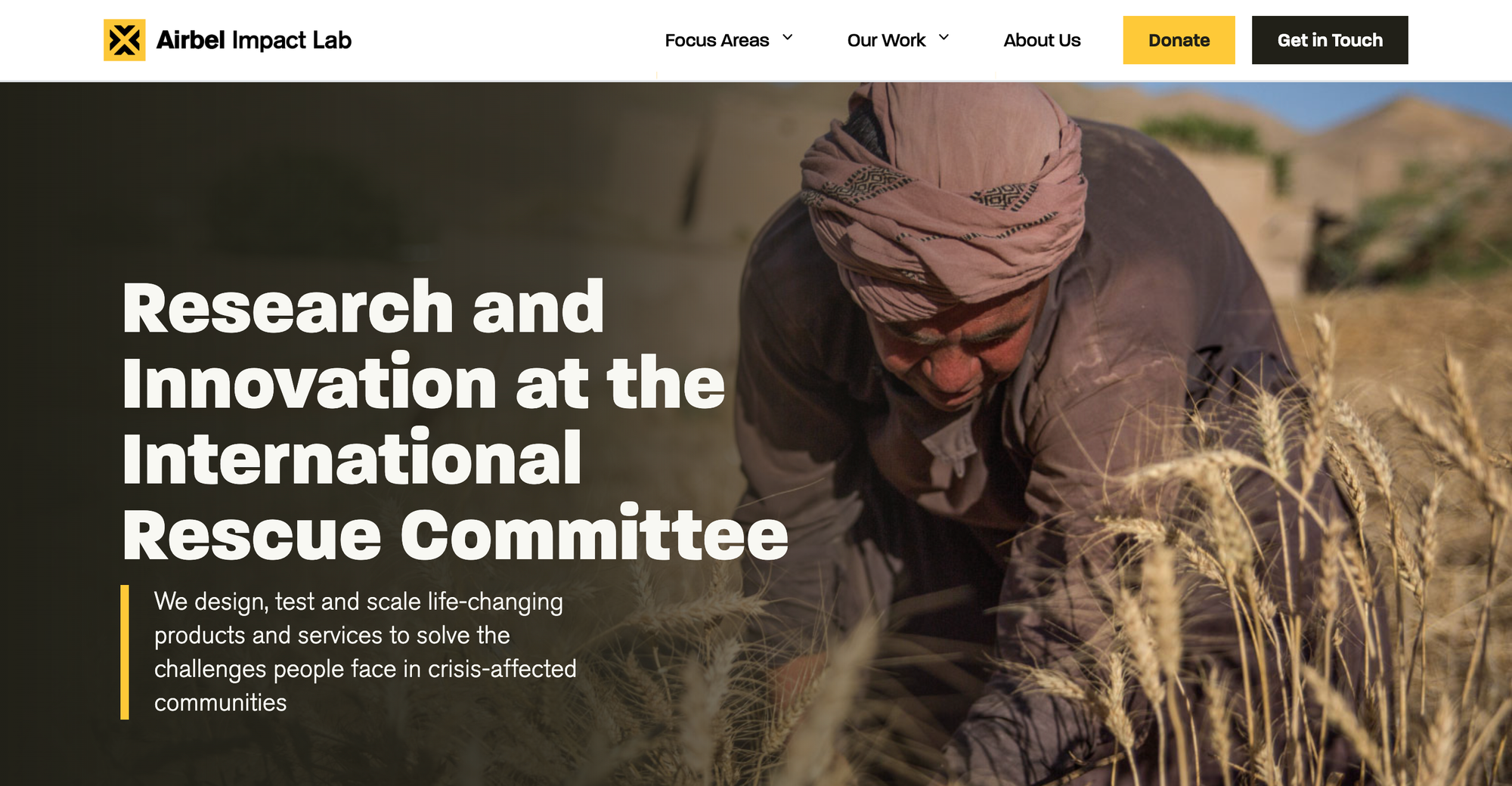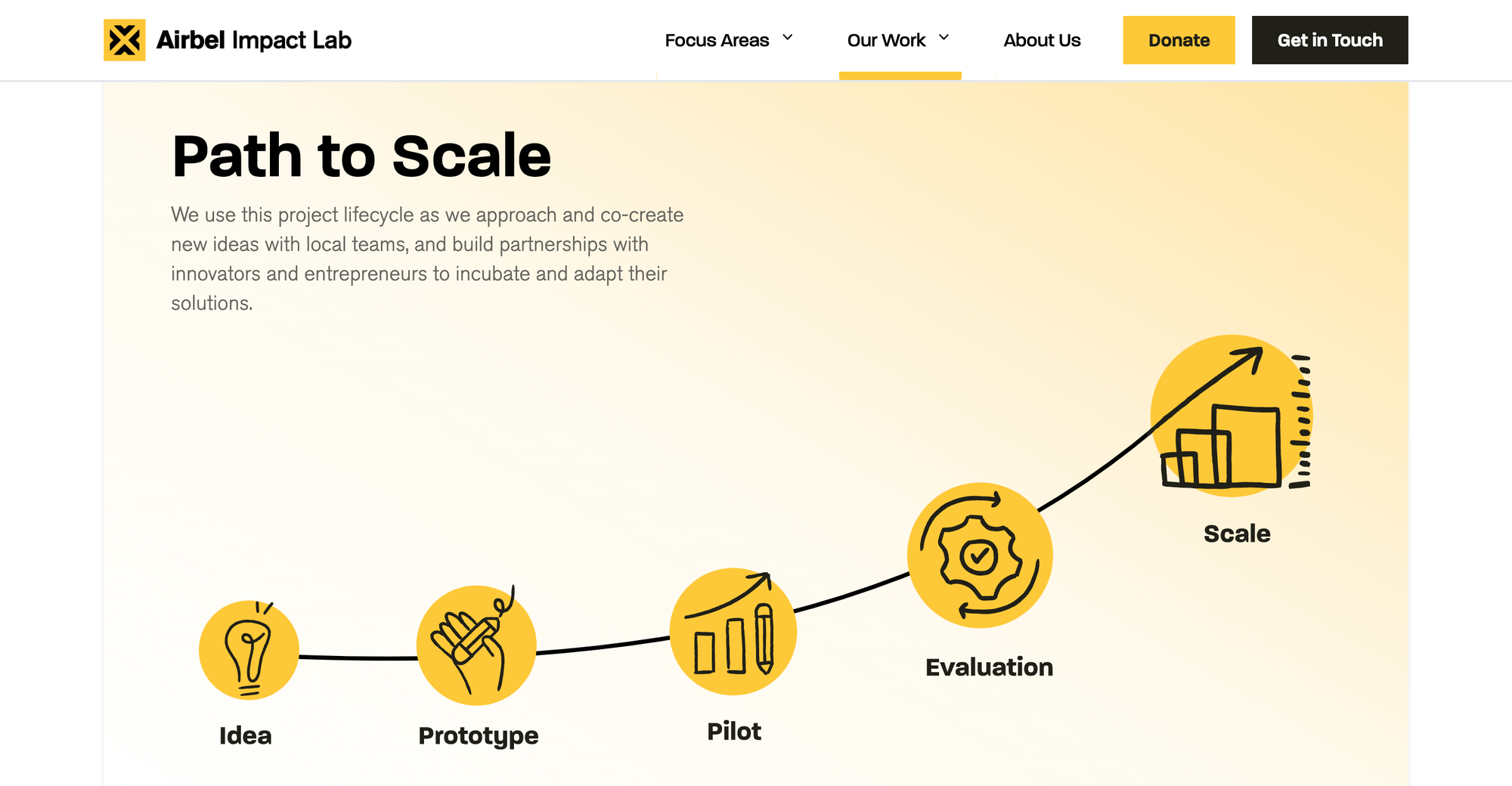In episode 224 of the Disruptors for GOOD podcast, I speak with Dr. Jeannie Annan, the Senior Vice President and Chief Research and Innovation Officer at the International Rescue Committee (IRC), one of the world’s leading humanitarian organizations.
Subscribe on Apple Podcasts
Subscribe on Spotify
Subscribe on Amazon Music
The IRC responds to the worst humanitarian crises, helping people whose lives have been shattered by conflict, disaster, and persecution to survive, recover, and rebuild their futures.
Operating in over 40 countries and in 28 U.S. cities, the IRC combines lifesaving support with long-term development strategies, impacting millions of lives each year.
Dr. Annan co-founded the Airbel Impact Lab, which serves as the IRC’s research and innovation arm. The Lab brings together a multidisciplinary team of researchers, designers, behavioral scientists, and analysts who work hand-in-hand with frontline staff, technical experts, and partners to create high-impact, scalable solutions.
Airbel focuses on a range of critical areas, including health, education, gender equity, livelihoods, and climate resilience, and operates in more than 30 crisis-affected countries around the globe.
As a core part of the IRC, Airbel’s innovative work is seamlessly integrated with the organization’s humanitarian operations, ensuring that research and new solutions directly address the needs of those on the frontlines of crises.
Dr. Annan’s own research has broken new ground in designing and testing interventions to address economic, behavioral, and mental health challenges, with a particular focus on preventing violence and supporting women and children affected by conflict and displacement.
Her career began with on-the-ground leadership in education and psychosocial programming in Kosovo, northern Uganda, and South Sudan, providing her with deep insights into the realities of humanitarian work.
In addition to her leadership at the IRC, Dr. Annan is an Associate at the Pearson Institute for the Study and Resolution of Global Conflicts at the University of Chicago and a research affiliate at Innovations for Poverty Action.
Her academic achievements include a PhD in Counseling Psychology and prestigious fellowships at Yale, NYU, and Harvard, where she has advanced her focus on forced displacement and violence prevention.

What is the Airbel Impact Lab?
In a world where the demand for humanitarian assistance is at an all-time high, traditional approaches alone are no longer sufficient. The Airbel Impact Lab serves as the IRC’s research and innovation hub, blending creativity with evidence-based strategies to deliver scalable solutions.
Despite representing only 3% of the humanitarian sector’s budget, Airbel contributes to a staggering one-third of the sector’s impact evaluations, cementing its position as a leader in evidence-driven humanitarian innovation.
What Does Airbel Do?
Airbel focuses on four key areas that align with pressing global challenges:
1. Climate Resilience
Airbel designs interventions to help communities adapt to and mitigate the effects of climate change, particularly in regions prone to extreme weather events and environmental degradation.
2. Education
With initiatives like aprendIA, an AI-driven chatbot platform, Airbel provides low-cost, personalized education programs that deliver dynamic content to mobile devices. This approach ensures learning continuity for children and adults, whether they are out of school due to acute crises or facing disruptions in protracted conflicts.
3. Malnutrition
Airbel’s combined protocol for treating malnutrition boasts a success rate of over 90%. This innovative method is cost-effective, scalable, and tailored to meet the needs of children in vulnerable communities.
4. Women-Centered Health
Airbel places a strong emphasis on addressing the unique health challenges faced by women in crisis settings, designing solutions that promote gender equity and improve access to vital health services.

The Impact
The Airbel Impact Lab’s work has already made significant strides in humanitarian aid:
- Malnutrition Treatment Success: With a recovery rate exceeding 90%, Airbel’s combined protocol is a game-changer in tackling malnutrition, offering a scalable and cost-efficient solution.
- Global Reach: Airbel has launched nearly 30 research and innovation projects in over 30 countries, designing and testing 20 solutions expected to reach 27 million people in the next five years.
- Evidence-Based Leadership: The IRC, through Airbel, is the largest contributor of impact evidence in humanitarian settings, with 285 research studies published to date.







